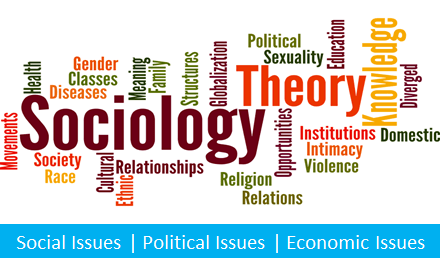
Sociology is a broad discipline that examines societal issues. It looks at the meaningful patterns of interaction between prisoners and warders, doctors and patients, mothers and daughters, paper writer workers and students, and bosses and workers.
For instance, German sociologist Georg Simmel studied how religions bind societies by analyzing how various religions’ rites and beliefs fulfilled certain social functions.
Social Issues
Sociology has an unusually broad range of social issues it can tackle. This includes all the usual suspects – poverty and hunger, racism and sexism, drugs and violence, and climate change. But also, the niggling issues that most people don’t notice, such as how all these groups interact with each other. For example, why does a person move to the right on the sidewalk rather than the left? Or how does the fact that we all wear T-shirts link us to garment factories in rural China or Bangladesh?
These are questions that sociologists can ask because they have the ability to look at social groups from an outsider’s perspective. They can take the view of, say, a group of teenagers at the park to see how their interactions affect them as individuals and the relationships between them.
The bloody French Revolution, the Reign of Terror that followed, and Napoleon’s attempts to subjugate Europe gave early sociologists a sense of urgency to study society. They wanted to understand how societies could go so wrong and use their rigorous scientific analysis to make them better. They shared Comte’s belief that the key to a good society was a unified spiritual order but had radically different views about how to achieve it. Emile Durkheim, for instance, saw the aim of sociology as a moral calling and a science.
Economic Issues
Sociology is a multidisciplinary field that holistically covers many different social phenomena. Sociology tries to understand creatively how different social institutions and practices are related to one another. It believes that human life is not segregated into exclusive spheres, and all these forces dynamically push and pull at people
Some of the traditional focuses of sociology include economic issues like capitalism, industrialization, and the division of labor. Classical sociologists such as Max Weber, Emile Durkheim, and Karl Marx studied these issues in great detail. Marxism emphasized the material roots of economic change as opposed to the idealist factors espoused by the Hegelians. Today, economic sociology takes on a much more holistic approach to understanding these processes.
Another strand of economic sociology is to study the interplay between individuals and their environment. This is also referred to as the Verstehen tradition and involves studying how these interactions impact the behavior of individuals.
Sociology studies virtually every aspect of social life, including family dynamics, education, aging, and work. Moreover, it also looks at the fundamental social processes that are present in all societies, such as conflict and inequality. In this way, studying sociology enables students to better understand the forces that shape their lives and make them more resilient in the face of adversity.
Political Issues
Sociology looks at social behavior from a multitude of perspectives. It studies the interconnectedness of human life, which is why it is able to explore so many different facets of society and human behavior. While the natural sciences are able to dispense with this multiple-perspective approach because the objects they study don’t have their own perspective, sociology is all about discovering how different social behaviors interact with each other.
For example, the field of sociology studies how a person’s status in society is determined and what factors influence it. This includes their property (class), education and career, prestige or popularity in the community, and how they are viewed by other members of society, as well as their ethnicity or race and gender.
This is why sociology is vital to learn about because it can help us better understand and address societal problems. For instance, if a particular issue is experienced by people of many different classes or races, it’s likely that the problem stems from something larger in the structure of society and should be addressed by policymakers or other organizations collaboratively.
This is the type of work that Jane Addams did when she co-founded Hull House in Chicago. She and other settlement house workers helped immigrant communities integrate into the American culture. They also worked to lobby elected officials on behalf of their constituents.
Social Organization
Humans lack the instincts that guide the behavior of most animals and must, therefore, rely on organizations to shape their decisions and actions. Sociologists study the many types of organizations – from government, church, and business to peer groups, clubs, community organizations, labor organizations, gangs, and cults – which are vehicles for purposive action toward common goals. Sociology investigates how people come to belong to such organizations, how they interact with them, and the effect that interaction has on their behavior.
One particular interest is the social web of dependencies that bind individuals to others, whether face-to-face or at a distance. Sociology seeks to understand how this web of relationships affects a person’s self-image, sense of well-being, and capacity for action.
Sociologists also seek to understand the nature of power, particularly how it is created and sustained on smaller and larger scales. They explore the emergence and transformation of structures such as class, race, and gender, which affect the rights, opportunities, and livelihoods of individuals across the globe.
Conflict theories, such as Marxism and feminism, are influential sociological viewpoints in this area. This is contrasted with consensus theories, which argue that all people, institutions, and structures have a function in society. These are often associated with the work of French sociologist Auguste Comte. This major philosophical tradition has influenced thinkers such as Emile Durkheim and Georg Simmel.